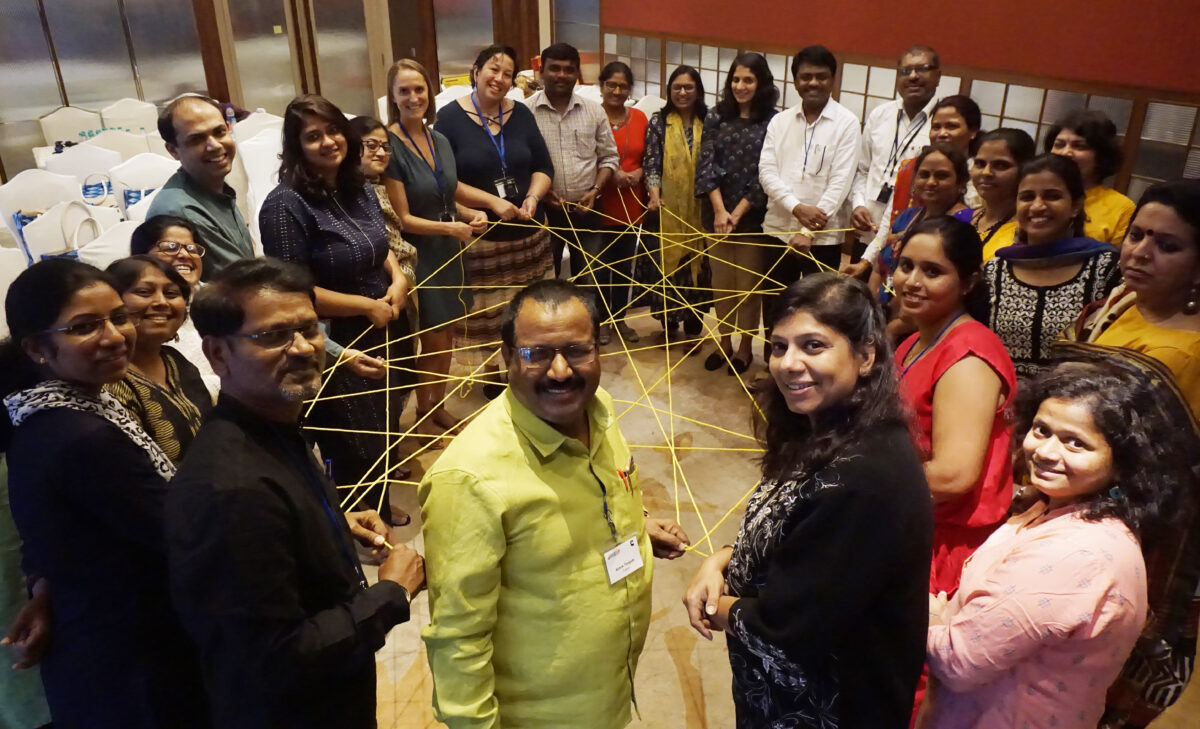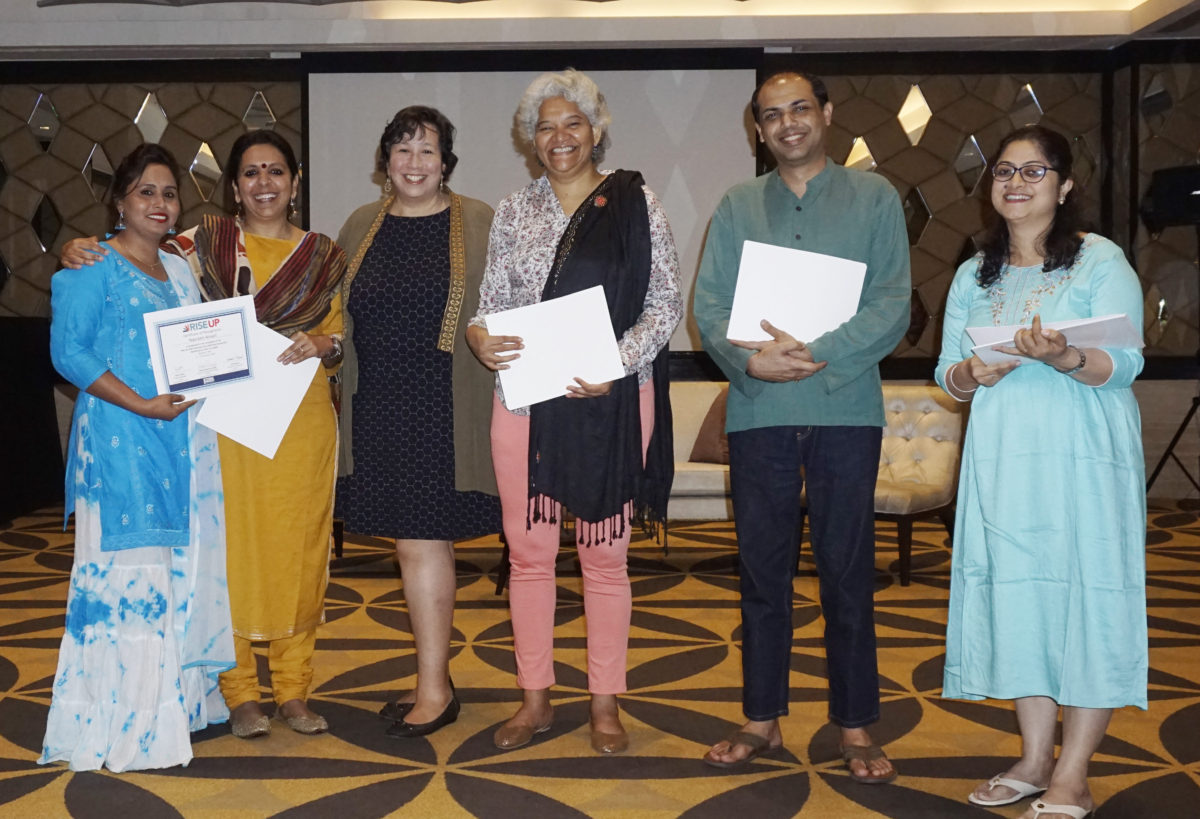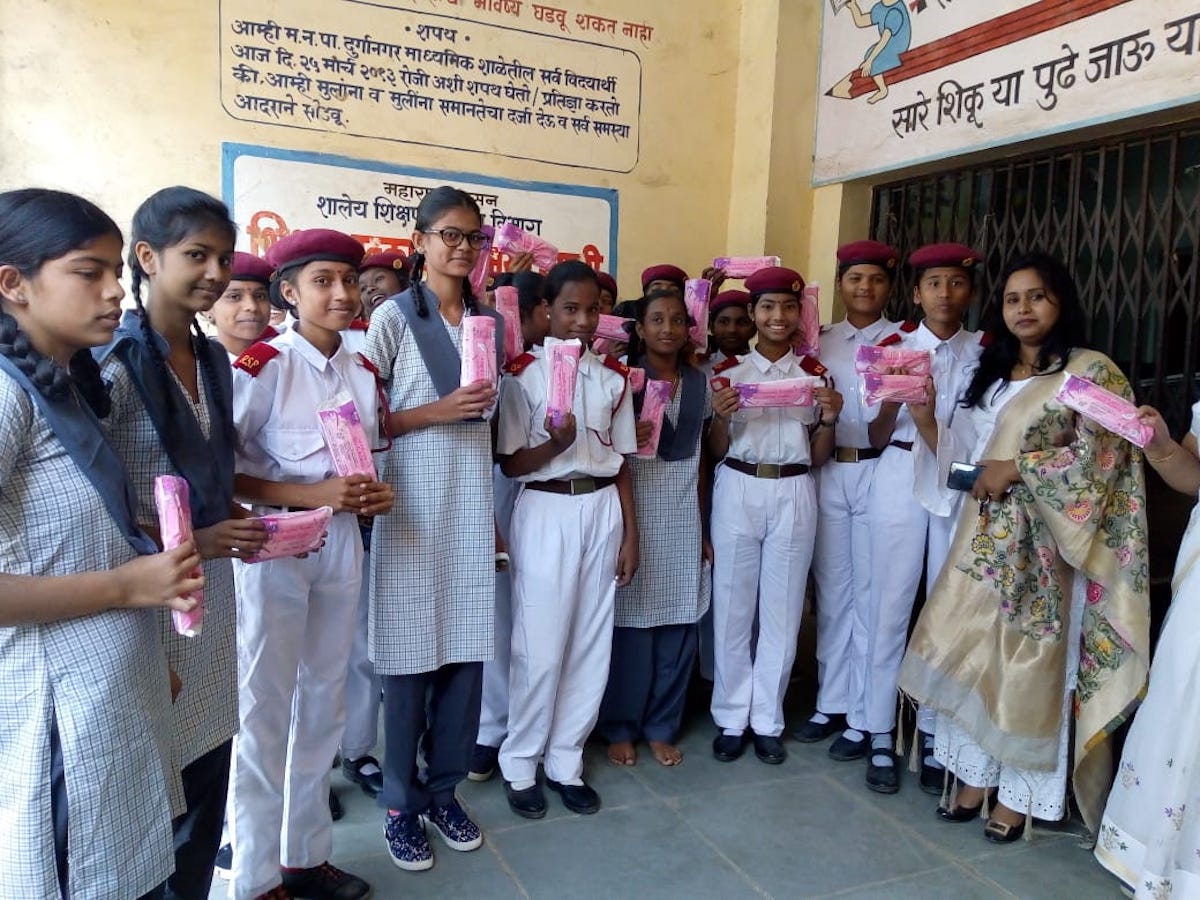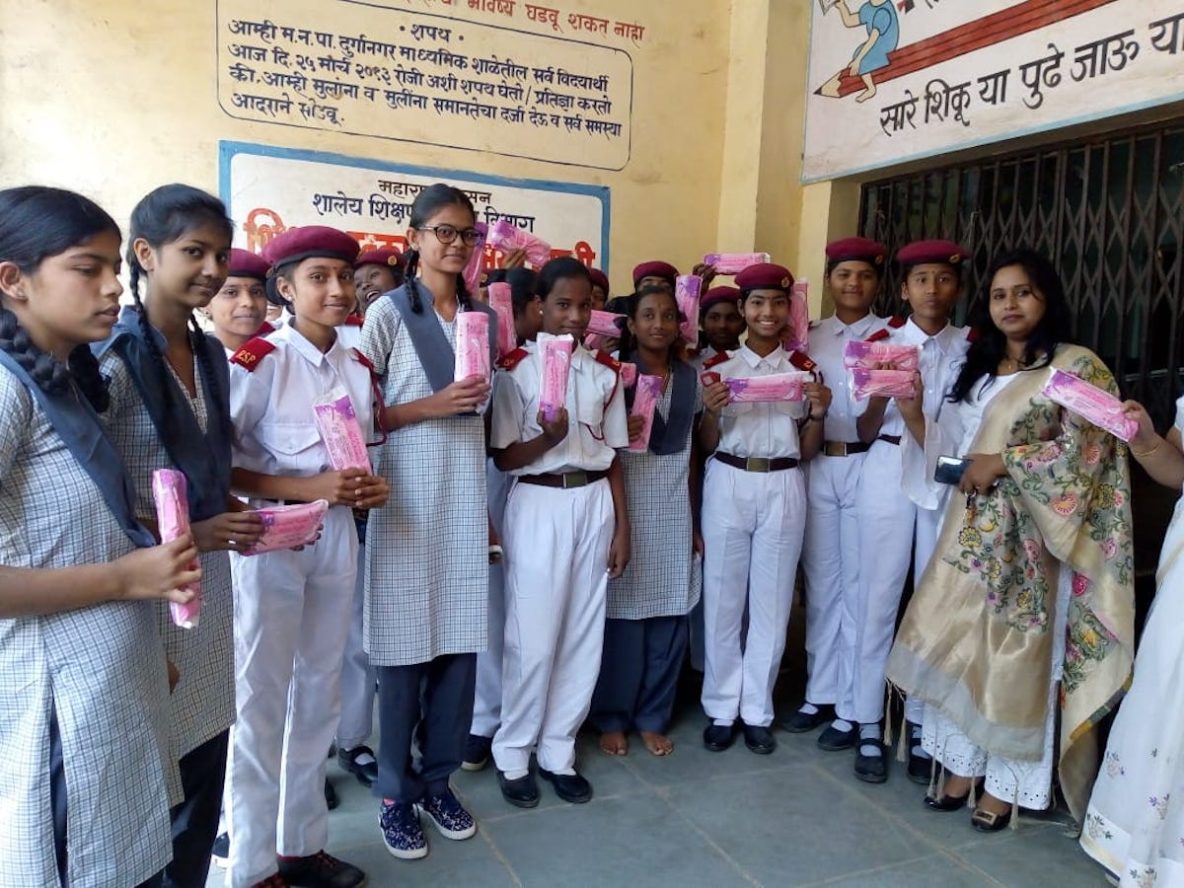By Nasreen Ansari, Rise Up Leader, India
 Rise Up Leader Nasreen Ansari is helping girls stay in school in informal settlements (also known as “slums”) in Maharashtra, India, by making sure that they have adequate access to menstruation supplies and facilities so they don’t miss school because of their periods. Recently, Nasreen and her organization, Amhi Amchya Arogyasathi, worked with girl leaders to successfully advocate for the provision of sanitary napkins and disposal units across all 28 schools in Nagpur. This girl-centered advocacy strategy will serve as a model that can be scaled up at the state level to benefit 10 million school-age girls in Maharashtra and replicated in school districts across the country. We asked Nasreen to share why this work is important to her, how she applies what she learned as a Rise Up Leader, and her vision for the future.
Rise Up Leader Nasreen Ansari is helping girls stay in school in informal settlements (also known as “slums”) in Maharashtra, India, by making sure that they have adequate access to menstruation supplies and facilities so they don’t miss school because of their periods. Recently, Nasreen and her organization, Amhi Amchya Arogyasathi, worked with girl leaders to successfully advocate for the provision of sanitary napkins and disposal units across all 28 schools in Nagpur. This girl-centered advocacy strategy will serve as a model that can be scaled up at the state level to benefit 10 million school-age girls in Maharashtra and replicated in school districts across the country. We asked Nasreen to share why this work is important to her, how she applies what she learned as a Rise Up Leader, and her vision for the future.
I was brought up in a society where misconceptions, cultural practices, and social taboos around menstruation were imposed quite strongly and restricted my mobility. When I experienced my menstrual period for the very first time, I was at school and I was terrified. I thought of menstruation as a burden. Now, when I hear the same story from young women and girls, I very easily relate to them because of my experience. Girls continue to be discriminated against and excluded, especially during menstruation. Due to stigma and lack of sexual education, knowledge about menstruation remains limited, leaving many girls with negative and ambivalent feelings and experiencing psychosocial stress, which also impacts their ability to learn.
When I became a Rise Up Leader, the Leadership and Advocacy Accelerator helped me to become more focused and see the larger picture of the issues affecting girls and women. I learned a lot from the other leaders in my cohort and honed my skills in doing girl-centered advocacy. The workshop also helped me steer my strategic direction and decide on the advocacy approaches needed to address issues facing girls in my community. I implemented the learnings from the workshop in my organization’s day-to-day work and that gave us the courage to shift and strengthen our work to go beyond what we had done before.

Nasreen (center, second from right) in a group activity during the Rise Up Accelerator in 2019
Previously, my community work with my organization Amhi Amchya Arogyasathi was at the grassroots level. This work is important, but after the Accelerator, we also understood that there are other critical steps needed to fully address the issues facing girls, like communicating with the media, forming networks with other stakeholders, and educating decision-makers. We also realized that we should strive to create new leaders who can sustain and carry on our work.
My organization and I are now working closely with girl leaders and our local schools to make menstruation supplies and related disposal facilities available. Thanks to the learnings and support from Rise Up, we have been successful in this process. As one of the girls said, “Now, menstruation is not creating any hindrances to our studies. Now, we are not forced to use a single pad throughout the day during school time, and we are very happy.” Looking at the happiness on their faces and spark in their eyes, I feel as if I have conquered the world!

Nasreen (left) receiving her diploma at the end of the Rise Up Accelerator
My goal for the future is for all schools to have menstruation supplies and disposal facilities available very soon. I also want to see teachers connect with girls to help them understand the natural phenomenon of menstruation and not see it as such a burden. Furthermore, I want menstruation management facilities to be available in all government, private schools, orphanages, and public places in Nagpur and throughout Maharashtra.”
Since the COVID-19 pandemic began, Nasreen has been leading the emergency response in her community, using a two-pronged approach. At the grassroots, she is working with girl leaders to generate awareness on COVID prevention and advocate with local stakeholders for their needs. At the district level, Nasreen engaged with the Right to Food Network to advocate with the Department of Food and the Department of Public Health to better serve a larger number of families.

Nasreen (right) with the girl leaders who successfully advocated for menstrual hygiene supplies in Nagpur schools
In sharing about her important work during this challenging time, Nasreen told us: “It is my first experience of strategizing interventions for any emergency response, and I’m glad that I got an opportunity to participate in Rise Up’s Leadership and Advocacy Accelerator and apply the learnings into the project. It is so empowering to see the girl leaders raising awareness on COVID prevention and advocating for access to food and essential supplies.”
Click here to read the Case Study: Supporting Girls’ Education Through Girl-Centered Advocacy for Menstrual Hygiene Supplies in Nagpur Schools.


